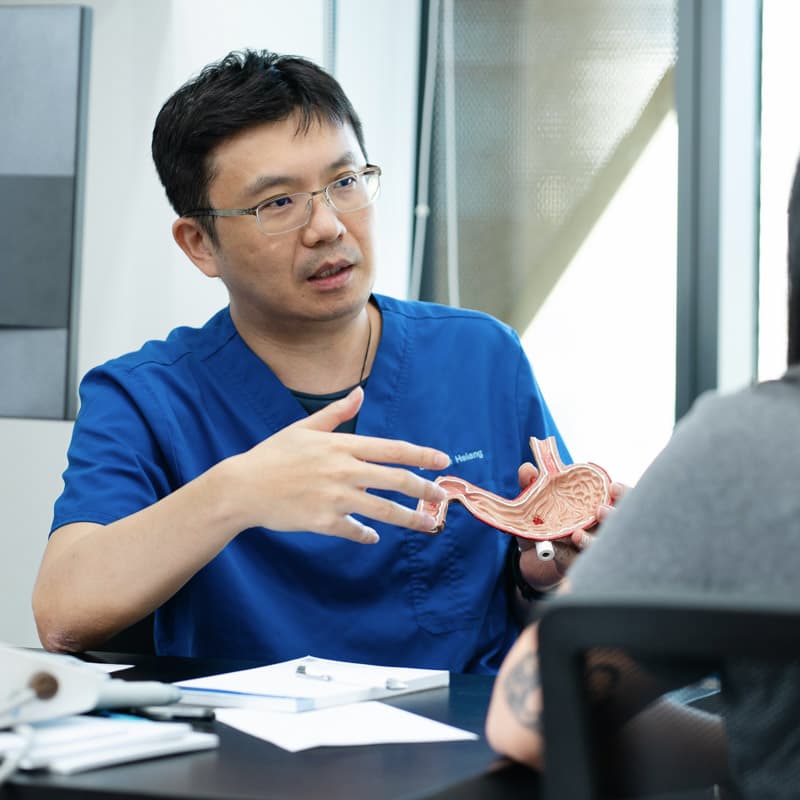Constipation
Constipation is a common digestive issue that affects people of all ages. While it’s usually not serious, it can cause discomfort and interfere with your daily life. The good news? Most cases can be managed with simple lifestyle changes and treatments.
Richmond Gastroenterology Centre
What is Constipation?
Constipation occurs when bowel movements become infrequent or difficult to pass. Most people experience it occasionally, but for some, it can be a chronic problem. Generally, having less than two bowel movements per week and the need to push and strain everytime you are passing motion is considered constipation.

What Causes Constipation?
1. Diet and Dehydration
A low-fibre diet or not drinking enough fluids can slow down digestion.
2. Lack of Physical Activity
Being sedentary, especially after illness or surgery, can affect your gut motility.
3. Medications
Certain medications like painkillers (especially opioids), iron supplements, and some antidepressants can cause constipation.
4. Health Conditions
Conditions such as irritable bowel syndrome (IBS), diabetes, hypothyroidism, or neurological disorders can contribute.
Common Symptoms
How is Constipation Diagnosed?
Constipation is typically diagnosed based on a patient’s symptoms, medical history, and physical examination. Doctors may ask about the frequency and consistency of bowel movements, dietary habits, fluid intake, physical activity, and any medications being taken. A physical exam may include an abdominal check and a digital rectal examination to assess for impacted stool or structural issues.
If symptoms are persistent or severe, further tests may be recommended. These can include blood tests to rule out metabolic causes, imaging such as abdominal X-rays, or specialised procedures like colonoscopy or anorectal manometry to evaluate bowel function and rule out underlying conditions such as colorectal cancer or pelvic floor dysfunction.
When to Consult a Gastroenterologist

Constipation can be frustrating, but it’s often manageable with a few adjustments to your routine. If symptoms persist or worsen, don’t hesitate to consult a healthcare provider to rule out any underlying problems and get personalised treatment.
An experienced gastroenterologist can accurately diagnose your condition, rule out other serious issues, and develop a personalised management plan to help you find relief and prevent complications.
Can Constipation Be Prevented?
When to See a Doctor
Occasional constipation is common but you should seek medical advice if you:
Your doctor may recommend tests like a physical exam, blood tests, colonoscopy or imaging studies to rule out underlying issues.


